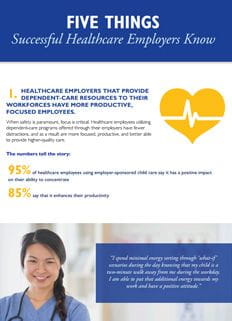What happens now? That depends -- do your people have someone to show them how to use it? If not, then probably...not much.
This is the caveat to the rapid-fire announcements of headline-generating employee education assistance programs: money alone isn't enough. While finances are indeed one obstacle to learning while earning a paycheck, time and confidence are the other two. Provide one (by paying tuition) without addressing other (with academic advising), and you may end up with an unexpected consequence (an investment that's little more than window dressing).
"By fostering and supporting the engagement of the student, " wrote a colleague not long ago, "advisors not only steer students to the most economical options, they also help them to maximize the odds of actually attaining their degree."
Employee Education Assistance: Not Just About the Money
The arms race of employee education assistance is understandable -- particularly in light of new jobs reports showing record job openings. But DIY degree planning for adults is counterintuitive. Even dorm-dwelling, straight-out-of-high-school undergrads need advisors -- and their only job is going to school. Adults have families and jobs to plan around. Going it alone can lead to a lot of costly mistakes.What kind of mistakes?
Taking more time than necessary
Employees alone with a course catalog and a highlighter probably don't know about time-saving credits they may have already earned. Previously taken classes can add up to some credits, life experience can add up to others. Competency exams can accelerate the process even further by letting people test out of introductory courses completely. All of that can take whole semesters -- or even years -- off of a degree, saving employers money, and getting skills in action faster. But an employee planning solo will likely be unaware.
Choosing the wrong program
Confidence comes from seeing the possibility of completion. The wrong program (either because of syllabus or location) can cloud those possibilities, leaving people idling at the starting gate -- or worse, dropping out halfway through. An experienced education professional can help assess learning style and competing life responsibilities and then find the program to fit. "Our employees can call free advisors and say, 'I don't know what to do," T-Mobile's Jocelyn Reed told a conference earlier this year about her company's tuition program. "That expert counselor can say, 'Let's find the right school. What are your passions? What do you want to do?' And help them along the way."
Both of the above can torpedo good intentions. It's why our own education programs start with an advising session. Our newly introduced Early Education Degree Achievement Program aimed at teachers (among our hardest-to-fill positions) can be life- and game-changing for both our employees and our company. But only if participants have the money and the confidence they need. And already it's striking a chord. "In the first week the program was live, we received almost 1,000 inquiries from center employees and signed up over 700 employees for introductory advising sessions," our CHRO Maribeth Bearfield told Employee Benefits Advisor. "The numbers have continued to grow since then."The message is that tuition is just the starting line. Advising is how you make people believe it can be done. "I feel like I can do this now!" and "I am going to do this!!" were just some of the enthusiastic employee reactions from our recent education fair.
"That," said T-Mobile's Jocelyn Reed, "really is what made a difference.




